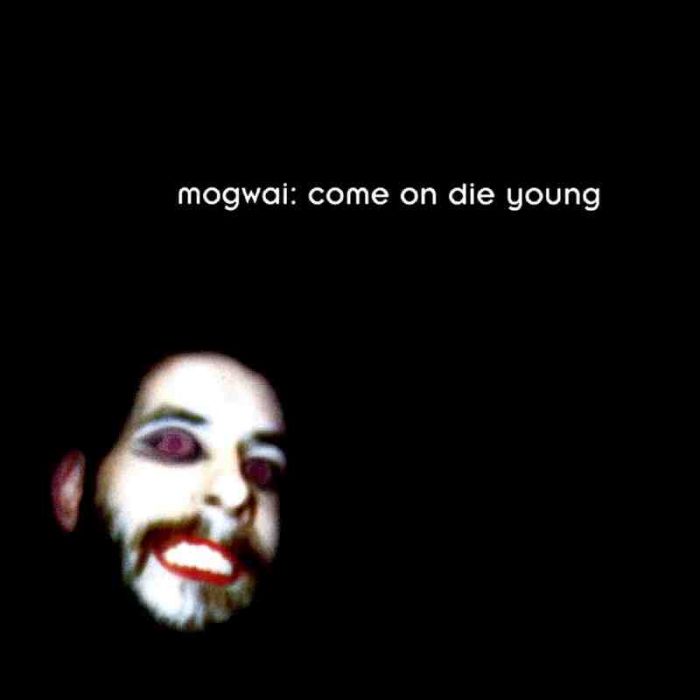Come On Die Young by Mogwai (Review)

The opener on the Glaswegian quintet’s second long player serves as an apt reminder of the ferocity generated on Young Team, their previous album. Called simply “Punk Rock,” it samples the godfather of Punk himself, Iggy Pop, submerged beneath a layer of arpeggiated electric guitar, launching into a diatribe against the rock establishment. Apparently taken from a bootleg video of a chatshow in the ’60s, it manages to sum up the attitude of angry young men in just a few minutes, while Mogwai frontman Stuart Braithwaite has since confirmed the intensity of the interview: “[I]t’s like something just clicked, you could see it in his [Iggy Pop’s] eyes….”
Mogwai are clearly indebted to the likes of Joy Division, and although never sounding like them, they are capable of capturing the brooding intensity of Closer. This is used to great effect throughout, but particularly on “Helps Both Ways,” which, like “Punk Rock,” samples bad American TV — this time a football game. The hysterical commentators are offset with punching snare and humming bass, while the signature chiming guitars gently unravel around the gentle strings. The overall feeling is that of being stuck in a stuffy hotel room, a long way from home. It won’t get played at many parties, I can tell you.
The endorsement of Kappa clothing in the sleevenotes, not to mention the actual song named in honour of the ‘Gwai’s favourite brand, will incense Godspeed You Black Emperor! and their fans. Pioneers of, ahem, “Sportz Goth” (Dominic Aitchison: “All you need is a black tracksuit, get the black trainers first”), as they call it. Even if it is a brand, their on-stage uniform is still an arresting sight.
Penultimate track “Christmas Steps” steals the show. Guitars weave between each other for 3 long minutes, as the threat of imminent violence hangs in the air. At approximately 3:48 on the clock, two juddering notes on a bass guitar intone sharply. The pace quickens as drums and guitars join shortly after. The chords reverberate repeatedly for a minute, when suddenly FX pedals are pushed and My Bloody Valentine-style sheer white noise washes over you. It’s breathtaking. A minute later and the storm is over. The song calmly warms down, and after the last quiet note is plucked, you feel like applauding. And that sentiment, I think, sums up the whole album.
Written by Andrew Collier.